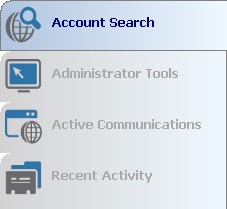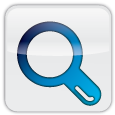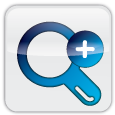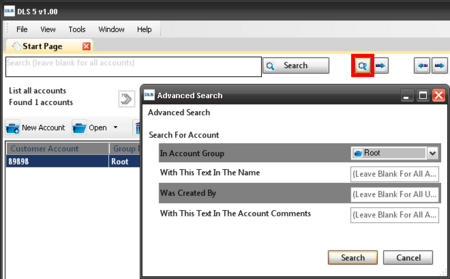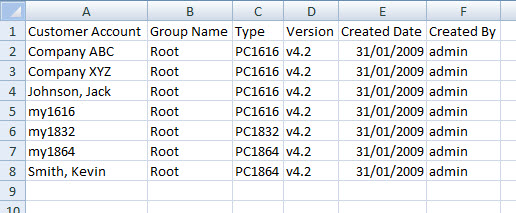Difference between revisions of "Plugins"
(→What is a Plug-in?) |
|||
| (19 intermediate revisions by 3 users not shown) | |||
| Line 4: | Line 4: | ||
[[image:Plugins.jpg|right]] | [[image:Plugins.jpg|right]] | ||
| − | Plug-ins are sections on the Start | + | Plug-ins are sections on the Start page of DLS which allow you to perform different functions. The plug-ins which are installed by default in DLS are Account Search, Administrator Tools, Active Communications, and Recent Activity. |
| + | |||
==Account Search== | ==Account Search== | ||
''For searching inside accounts for data, see [[Searching Within an Account]]. | ''For searching inside accounts for data, see [[Searching Within an Account]]. | ||
| − | + | Account Search is available from the Start page. | |
| − | + | ||
| − | + | ||
| − | Account Search is available from the Start | + | |
Note that the Account Search function is executed immediately after creating an account, with the new account's parameters. This is to ensure that the newly created account is very easy to find. During this process, the Account Group filter will be set to the new account's Account Group. | Note that the Account Search function is executed immediately after creating an account, with the new account's parameters. This is to ensure that the newly created account is very easy to find. During this process, the Account Group filter will be set to the new account's Account Group. | ||
| Line 21: | Line 19: | ||
The Basic Search function searches only in the Customer Account Name for the search phrase. The search is performed similarly to popular internet search engines: if the search phrase exists ANYWHERE in the Customer Account Name, it is considered a match. | The Basic Search function searches only in the Customer Account Name for the search phrase. The search is performed similarly to popular internet search engines: if the search phrase exists ANYWHERE in the Customer Account Name, it is considered a match. | ||
| + | |||
| + | |||
| + | [[Image:Search1.png]][[Image:Search.png|450px|The Account Search Plugin]] | ||
| + | |||
=== Advanced Search === | === Advanced Search === | ||
| + | |||
| + | [[Image:AdvancedSearch.png|right]] | ||
| + | [[Image:Asearch.png|right|450px|Advance Search Plugin]] | ||
To access the Advanced Search fields, click the "Advanced" button on the rightmost side of the Search pane. An additional set of fields become available for searching: | To access the Advanced Search fields, click the "Advanced" button on the rightmost side of the Search pane. An additional set of fields become available for searching: | ||
| Line 35: | Line 40: | ||
| − | Each of these fields, when selected offer specific search parameters, such as: | + | Each of these fields, when selected offer specific search parameters, such as the following: |
| − | - Exact Match - | + | - Exact Match - The search phrase must match exactly, including space characters and punctuation characters. |
| − | - Contains - | + | - Contains - The search phrase can be contained anywhere in the field. |
| − | - Starts With - | + | - Starts With - The field must start with the search phrase, other contents are ignored. |
| − | - Ends With - | + | - Ends With - The field must end with the search phrase, other contents are ignored. |
| Line 58: | Line 63: | ||
To return to Basic Account Search, click the "Basic" button on the rightmost side of the Search pane. | To return to Basic Account Search, click the "Basic" button on the rightmost side of the Search pane. | ||
| + | |||
=== Export Search === | === Export Search === | ||
| − | After performing a search, the search results can be recorded by using the Export Search function. The | + | [[Image:ExportSearch.png]] |
| + | |||
| + | |||
| + | After performing a search, the search results can be recorded by using the Export Search function. The Export Search button is located on the Search toolbar. The Export Search function saves the search results in a .CSV file (easily opened by Microsoft Excel or other spreadsheet applications). | ||
| − | |||
| Line 87: | Line 95: | ||
The Administrator Tools plug-in allows you to perform various administrator tasks, such as deleting accounts, importing files, and managing other plug-ins and themes. | The Administrator Tools plug-in allows you to perform various administrator tasks, such as deleting accounts, importing files, and managing other plug-ins and themes. | ||
| − | |||
| − | |||
| − | |||
| − | |||
| − | |||
| − | |||
| − | |||
| − | |||
| − | |||
| − | |||
| − | |||
| − | |||
| − | |||
| − | |||
===Users Online=== | ===Users Online=== | ||
| − | The Users Online tab displays all of the users currently connected to the DLS | + | The Users Online tab displays all of the users currently connected to the DLS authentication service. This includes not only human users logged in to the software, but also other [[services|DLS Services]] which use this function, such as the Communications Manager. |
===Accounts Opened=== | ===Accounts Opened=== | ||
| − | The | + | The Accounts Opened tab displays a list of all the accounts currently being accessed. The accounts are shown in a tree view. The tree shows the account name, the full path of the account, and which user currently has the account opened. If you expand the user branch, you will see the time the account was opened, the name of the computer the user opened it on, and the user type. |
===Remove Accounts=== | ===Remove Accounts=== | ||
| − | This is where files tagged for deletion | + | This is where files tagged for deletion appear. Simply click on the account name and select Remove to confirm deletion of the account. |
| + | |||
| − | |||
==Active Communications== | ==Active Communications== | ||
| − | The | + | The Active Communications plug-in allows you to view the various communications jobs which are either currently active, failed, or queued. |
| + | |||
| + | |||
==Recent Activity== | ==Recent Activity== | ||
| − | The | + | The Recent Activity log shows you a list of all of the actions that have been taken recently in the DLS software. The Recent Activity plug-in displays the date/time of the event, the user who performed the operation, the computer the operation was done on, and what the event was. |
Latest revision as of 23:08, 17 December 2012
Contents
What is a Plug-in?
Plug-ins are sections on the Start page of DLS which allow you to perform different functions. The plug-ins which are installed by default in DLS are Account Search, Administrator Tools, Active Communications, and Recent Activity.
Account Search
For searching inside accounts for data, see Searching Within an Account. Account Search is available from the Start page.
Note that the Account Search function is executed immediately after creating an account, with the new account's parameters. This is to ensure that the newly created account is very easy to find. During this process, the Account Group filter will be set to the new account's Account Group.
Basic Search
The Basic Search function searches only in the Customer Account Name for the search phrase. The search is performed similarly to popular internet search engines: if the search phrase exists ANYWHERE in the Customer Account Name, it is considered a match.
Advanced Search
To access the Advanced Search fields, click the "Advanced" button on the rightmost side of the Search pane. An additional set of fields become available for searching:
- Customer Account Name
- Comments
- Created By
- Flag Delete
Each of these fields, when selected offer specific search parameters, such as the following:
- Exact Match - The search phrase must match exactly, including space characters and punctuation characters.
- Contains - The search phrase can be contained anywhere in the field.
- Starts With - The field must start with the search phrase, other contents are ignored.
- Ends With - The field must end with the search phrase, other contents are ignored.
You may add multiple search criteria to one search. For example:
- Customer Account Name = Starts With "john"
- Comments = Contains "discount"
- Created By = Ends With "johnson"
Any results that are displayed must meet all three of these search criteria.
To return to Basic Account Search, click the "Basic" button on the rightmost side of the Search pane.
Export Search
After performing a search, the search results can be recorded by using the Export Search function. The Export Search button is located on the Search toolbar. The Export Search function saves the search results in a .CSV file (easily opened by Microsoft Excel or other spreadsheet applications).
The exported .CSV file contains the following information about the account:
- Customer Account Name
- Group Name
- Type
- Version
- Created Date
- Created By
It is important to note that the search criteria is NOT exported in the .CSV file. You have to record the search criteria manually, if you also want to have it with the export.
Administrator Tools
The Administrator Tools plug-in allows you to perform various administrator tasks, such as deleting accounts, importing files, and managing other plug-ins and themes.
Users Online
The Users Online tab displays all of the users currently connected to the DLS authentication service. This includes not only human users logged in to the software, but also other DLS Services which use this function, such as the Communications Manager.
Accounts Opened
The Accounts Opened tab displays a list of all the accounts currently being accessed. The accounts are shown in a tree view. The tree shows the account name, the full path of the account, and which user currently has the account opened. If you expand the user branch, you will see the time the account was opened, the name of the computer the user opened it on, and the user type.
Remove Accounts
This is where files tagged for deletion appear. Simply click on the account name and select Remove to confirm deletion of the account.
Active Communications
The Active Communications plug-in allows you to view the various communications jobs which are either currently active, failed, or queued.
Recent Activity
The Recent Activity log shows you a list of all of the actions that have been taken recently in the DLS software. The Recent Activity plug-in displays the date/time of the event, the user who performed the operation, the computer the operation was done on, and what the event was.
